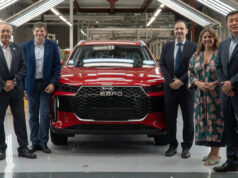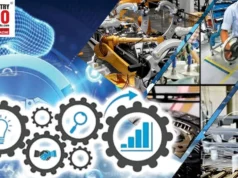Intelligent Automation Simplified : A Synopsis
Intelligent Automation is one of the key drivers in business transformation today. It has now become a part of the enterprise strategy of many large organizations. From back-office automation of manual, labor intensive processes, it has become a key enabler in enterprise transformation, automating customer journeys spanning across front, mid, and back offices. It is now one of the key pillars of the digital and process transformation which delivers the promise of adaptive, intelligent, and smart processes across the enterprise.
 When I started working in Intelligent Automation in around 2015, it was primarily RPA centric. The tools were still maturing, and automation was still to prove its full potential beyond a few back-office operations. Today, it’s a different scenario altogether. Industry 4.0 has automation powered by AI as its key lever and discussions on automation are prevalent across all segments and industries today. Intelligent Automation has proved that it is here to stay.
When I started working in Intelligent Automation in around 2015, it was primarily RPA centric. The tools were still maturing, and automation was still to prove its full potential beyond a few back-office operations. Today, it’s a different scenario altogether. Industry 4.0 has automation powered by AI as its key lever and discussions on automation are prevalent across all segments and industries today. Intelligent Automation has proved that it is here to stay.
I learnt automation mostly on the job, starting from designing core automation solutions, driving their delivery and deployment, to consulting Fortune 500 clients on Intelligent Automation Strategy and transformation. I have been a part of the evolution – basic automation to Intelligent Automation and soaked in the buzz around it. The idea of this book emerged with the thought to pass on the knowledge and experience I have accumulated over the years, to younger professionals, and help them get a holistic idea about this from a practical perspective. This book is meant to help and guide professionals implement Intelligent Automation in their respective organizations. It’s written in simple language to allow readers to get the essence of it without sounding too technical about it. I have embedded practical tips, design samples and stories from my experience to help readers navigate through real projects in their jobs.
This book assumes that the reader is familiar and has got basic exposure on how to design and deliver software development projects. It also assumes that the reader is familiar and has a basic concept about software component design principles. Since this book is not a deep dive on any particular technology component, it assumes that the readers have initial familiarity on AI , RPA, Blockchain , IoT, Integration.
The content of this book is purely a practical perspective and guide for business engagements to aid professionals who are new to Intelligent Automation. This book may not address any research or theoretical questions.
Over the 7 chapters in this book, the readers will learn the following :
Chapter1 introduces Intelligent Automation as a concept and how it has evolved. It then focuses on the different levels of automation, the various components on this and finally touches upon some of the impacts of automation in the context of future of work.
Chapter 2 discusses Robotic Process Automation in detail, with its characteristics and capabilities. It tells you how to decide which use cases are best suited by RPA and how to go about developing them. It touches upon some of the leading products and solutions
Chapter 3 focuses on Artificial Intelligence, what it entails and the various capabilities of AI that are relevant in the context of Intelligent Automation and how to decide which use cases are fit for AI implementation.
Chapter 4 discusses the other technological components that make up Intelligent Automation like BPM, Blockchain, IoT, Integration and best practices for implementing them in the enterprise.
Chapter 5 is the most important chapter of the book. It describes several key use cases across business and IT automation. It describes the processes, tells you how to select the automation levers, how to design this solution with the aid of detailed component design diagrams. This is my favorite chapter ?
Chapter 6 is a key chapter which discusses, in depth, the enterprise automation journey, why we need an Intelligent Automation Center of Excellence and what are the key capabilities of a CoE that can help an enterprise scale automation.
Chapter 7 is the last chapter and before wrapping up, touches upon some of the key trending topics around automation today. Citizen development, Process Mining and AIOps are discussed in detail before ending the chapter with Future of Work – the impact of Intelligent Automation.
Technology is rapidly evolving, and the pandemic has forced all of us to adapt and thrive in the new environment. I am certain, that over the next few years, we will see more evolution of Intelligent Automation as it becomes farther mainstream and touches every aspect of our lives.
Ms. Debanjana Dasgupta book Intelligent Automation Simplified is available in :
https://in.bpbonline.com/products/intelligent-automation-simplified
https://www.amazon.in/Intelligent-Automation-Simplified-Enterprise-Use-cases/dp/9391392547/
About the Author :

Ms. Debanjana Dasgupta
Associate Partner & Executive IT Architect – Intelligent Automation at IBM India Pvt. Ltd.,
Author : Intelligent Automation Simplified
Ms. Debanjana Dasgupta is an experienced IT architect and consultant, who for the past 25 years have been working with customers across the globe, designing various technological solutions to resolve their business problems. She completed her engineering from Jadavpur University, Kolkata majoring in Electrical Engineering and started her career with a leading IT company. In her career, she has worked with several Indian and Global IT majors, serving plethora of global clients across industries. She is currently employed with a leading MNC and focused on Intelligent Automation. She is based out of Delhi, India.
Apart from her job, Debanjana loves to coach, mentor, teach and is actively involved in mentoring IT architects and technical professionals in her organization and beyond.
Outside work, she is an avid traveler and a passionate musician.
Ms. Debanjana Dasgupta is Bestowed with the following Licenses & Certifications :
https://www.linkedin.com/in/de
Ms. Debanjana Dasgupta can be contacted at :
LinkedIn : https://www.linkedin.com/in/de
E-mail : [email protected]
Twitter : https://twitter.com/debanjanad









